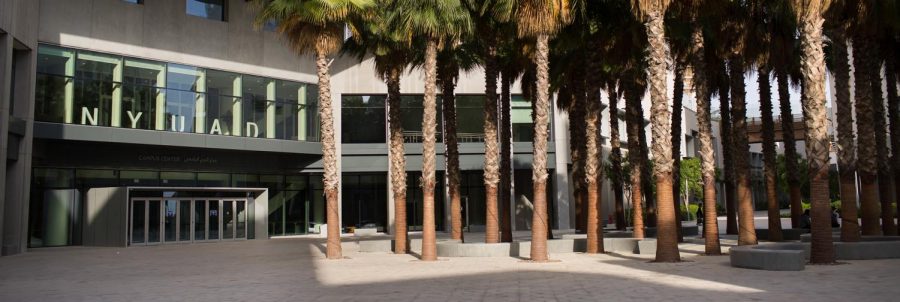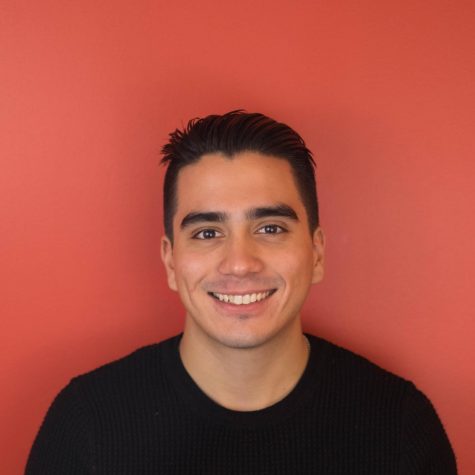Former NYUAD Staff Forced to Misidentify Religion
Prior to 2012, Jewish and atheist NYUAD advisors were forced to misidentify their religion when applying for work visas.
November 20, 2017
Six years ago, a number of self-identified Buddhists and Sikhs walked NYU Abu Dhabi’s campus as Academic Fellows. This group of recent NYU graduates went halfway across the world to assist NYUAD’s inaugural class. Part advisors and part mentors, they were deeply involved in the formation of NYU’s budding global network. Then, in a matter of months, many of these so-called Buddhists disappeared from government records.
Several of these Academic Fellows, it turns out, had actually been Jewish or atheist all along. On the advice of NYU’s Human Resources Department, these advisors misidentified their religious affiliations on government documentation, according to interviews with two 2011 advisors.
Prior to February 2012, prospective Jewish and atheist Academic Fellows were unable to accurately identify their religious affiliations when applying for work visas, according to two former Academic Fellows personally affected. Instead, they were required to choose from a limited list of religious affiliations that included the options of Muslim, Christian, Hindu and Buddhist, among others, according to Associate Vice Chancellor of Global Programs and former faculty member Josh Taylor, who was directly affected by this.
Taylor said these restrictions were limited to faculty and did not apply to students. By February 2012, Abu Dhabi had officially changed its visa policies to allow applicants to identify however they wanted, Taylor said in an email to WSN.
Applicants must complete a security clearance form reviewed by the Emirati Ministry of the Interior in addition to a work visa form. While the security clearance allows applicants to describe themselves however they please, the 2011 version of the visa form only allowed applicants to choose certain religions.
One former Jewish Academic Fellow who worked at NYUAD from 2011 to 2012 agreed to speak to WSN about their experiences on the condition of anonymity due to their current job. When this advisor filled out the form, they hand-wrote that they were Jewish rather than one of the listed options on the PDF application, as Judaism was not included. Shortly after submitting this form, the advisor said they received a phone call from NYU Human Resources representative Wasim Liaqat.
Though the call was brief and the instructions were obscure, the advisor remembers Liaqat advising them to misidentify their religious affiliation on the government document. The Academic Fellow said they were then told to pick from a list of eight acceptable religions.
Liaqat left NYUAD in 2016 and now works as the Director of Recruitment at Venaari, according to his LinkedIn profile. Liaqat did not respond to WSN’s requests for comment about the incident.
In an an email to WSN, June Ng, who also worked as an advisor in 2011 and did not disclose her religious affiliation, confirmed that Jews and atheists were told to choose a religion other than their own.
“This is definitely something that happens,” Ng said. “I was told the same thing upon arrival to Abu Dhabi. We were a little confused, but we did it anyways to avoid any trouble.”
Taylor said he listed himself as Jewish on his security clearance and Christian on his visa form. Though he confirmed that many of his colleagues did the same, he said that neither he nor those he knew took offense.
With Abu Dhabi’s policy change in 2012, many of those who had temporarily identified themselves as an alternative religion successfully changed their documentation to reflect their correct religious identity.
“Since February 2012, this issue has not come up again, and anyone who wishes to modify their earlier filling has the opportunity to do so when their visas come up for renewal,” Taylor said.
Taylor said he believed the university had been completely transparent about why faculty members were unable to write down their actual religions.
The former advisor who wished to remain anonymous said that in addition to being asked to misidentify their religion, they faced some restrictions of public expression early on.
“We were not allowed to practice our religion in common space, nor could we advertise being Jewish,” the former advisor said.
Upon the end of their time in Abu Dhabi, the former advisor said that, like the visa matter, many of the issues surrounding religious expression in common spaces had been rectified.
“By the end of the year, partly due to advocacy of the Jewish community and the NYUAD administration, it became more acceptable for Jews to declare themselves when applying for a visa, and we had begun to practice openly in common spaces,” they said.
When asked, Taylor said his experience with religious expression differed from that of the former Academic Fellow. Taylor said there were a number of Jewish celebrations and traditions honored at NYUAD’s campus, including events honoring Hanukkah and Passover.
It is unclear exactly why the Abu Dhabi government altered the available religious options on visas in 2012.
When asked if NYU had a direct influence on this policy change, Taylor said he did not wish to speculate but did say that many voices within the university had “expressed [their] desire to see a greater range of options provided on the work visa form.”
Email Mack DeGeurin at [email protected]
























































































































































